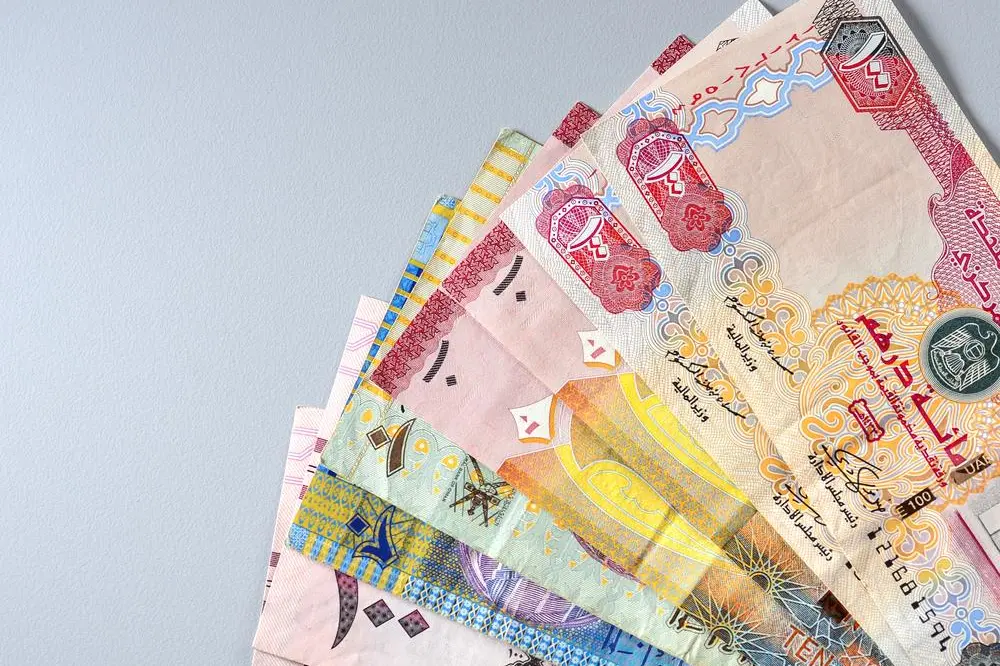PHOTO
DUBAI - The uncertainty surrounding the new coronavirus outbreak has added to fund managers' expectations that 2020 will see fewer hard currency bond issues from the Gulf compared to last year.
Governments and corporates in the Gulf have increasingly turned to the debt markets in recent years to replenish coffers depleted by lower oil prices while taking advantage of global low rates.
Last year the Gulf supplied a record $87.6 billion in international bonds, according to Refinitiv data, eclipsing the $71.8 billion in 2018 and topping 2017's record $84 billion.
But a rise in regional bond spreads since the beginning of the year suggests the impact of China's coronavirus outbreak on global economic growth may translate into higher funding costs for Middle East debt issuers, potentially curbing new borrowing.
"The recent market volatility and generally wider credit spreads due to the coronavirus could add further uncertainty and would encourage GCC (Gulf Cooperation Council) issuers, both governments and corporates, to look for alternative sources of financing," said Raffaele Bertoni, head of debt capital markets at Gulf Investment Corporation.
He said 2019 was also characterised by high refinancing activity, expected to be lower this year.
Loans, he added, are an attractive alternative "at a time when regional banks have solid balance sheets and ample liquidity to deploy".
S&P Global Ratings said in a report on Monday that banks in the United Arab Emirates are expected to remain resilient in 2020, with credit growth supported by government spending.
In Saudi Arabia, the Arab world's largest economy, liquidity in the banking sector improved late last year, with Saudi Aramco's initial public offering boosting banks' deposits.
Still, despite rising military tensions in the Gulf as Iran and the Unites States traded missile strikes last month, Saudi Arabia managed to raise $5 billion in bonds, securing low rates.
That debt sale was followed by some bank and corporate deals, but the pace of issuance slowed down last week, partly because of the Chinese New Year holiday.
"We'll see this week, but I don't think the pipeline has stopped. But for sure, for people looking at deals in spread terms, the spreads have gone up," said a Dubai-based debt banker.
HIGHER SPREADS
Gulf bond spreads have risen since the beginning of the year. Saudi government international bonds maturing in 2049 have seen spreads widen to 170 basis points (bps) over U.S. Treasuries (UST) from 148.5 bps on Jan. 1, according to Refinitiv data.
Similarly, spreads widened for government debt issued by Abu Dhabi and Qatar, as well as for Aramco's bonds due in 2049.
"The risk-off sentiment in emerging markets credit continued last week, as concerns around the impact on economic activity as a result of the spread of the novel coronavirus remain," said Richard Briggs from London-based CreditSights.
The coronavirus may slash Chinese demand for Middle East oil and reduce tourism flows into the region, while disruptions to supply chains might impact imports, Japan's MUFG said on Monday.
It added one "indirect transmission channel" would also be the impact of lower oil prices on fiscal deficits, financing requirements and credit ratings.
(Reporting by Yousef Saba and Davide Barbuscia, editing by Ed Osmond) ((Yousef.Saba@thomsonreuters.com; +971562166204))





















